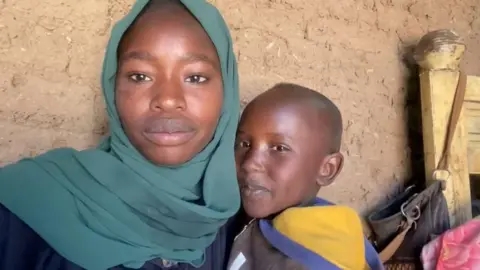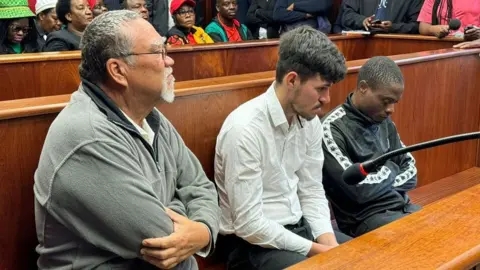The United States has expanded its deportation efforts by sending individuals with criminal convictions to African countries, raising legal and ethical concerns. Recent reports confirm that migrants from Mexico, Myanmar, Yemen, and South Sudan were relocated to Eswatini and South Sudan, despite questions about the safety and legality of such transfers.
Legal Concerns Over Third-Country Deportations
International law permits deportations to third countries under strict conditions, primarily ensuring that migrants are not sent to nations where they may face persecution or harm. The principle of non-refoulement—a cornerstone of refugee protection—prohibits returning individuals to dangerous environments, whether their home country or an alternative destination.
However, critics argue that the US has bypassed these safeguards. Legal experts point out that deportees often lack sufficient opportunity to challenge their removal, particularly when flights depart before court hearings conclude. In one case, a US judge halted a deportation flight to South Sudan after ruling that migrants had been denied due process. Despite this, the Supreme Court later allowed the removals to proceed without assessing whether South Sudan was a safe destination.
Risks in Destination Countries
South Sudan, currently under a US travel advisory due to armed conflict and instability, has been flagged as a high-risk location for deportees. Reports indicate that those sent there are detained in Juba under poor conditions. Similarly, Eswatini’s prisons face documented issues, including overcrowding and inadequate healthcare.
Human rights advocates warn that such deportations may violate international law if migrants face inhumane treatment or indefinite detention. “Courts must scrutinize these transfers carefully,” says a UN expert. “When basic rights are ignored, the consequences can be dire.”
Motivations Behind the Deals
The agreements between the US and African nations remain largely undisclosed, but analysts suggest political and economic incentives may be at play. Some countries fear diplomatic repercussions, such as visa restrictions, if they refuse cooperation. Others may seek concessions, such as sanctions relief or financial aid.
Nigeria, however, has rejected similar requests, with officials stating they “have enough problems of our own.” Meanwhile, opposition groups in Eswatini have condemned the arrangement as “human trafficking disguised as deportation.”
A Controversial Strategy
Critics argue that these deportations serve as a deterrent, sending a harsh message to migrants. Yet, without proper legal safeguards, vulnerable individuals risk being stranded in unstable environments with little recourse.
As debates continue, the broader implications for international law and human rights remain unresolved. Legal experts warn that if unchecked, such practices could set a dangerous precedent, undermining protections for migrants worldwide.









